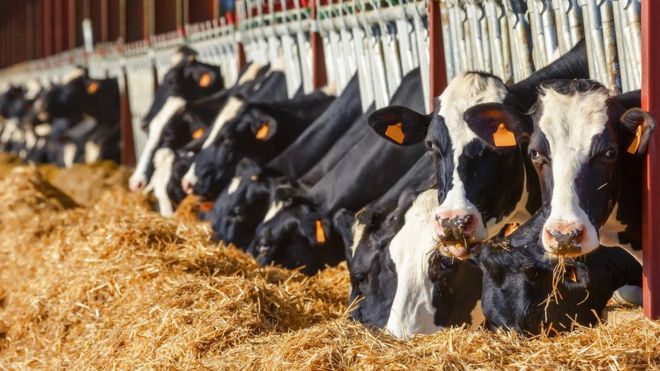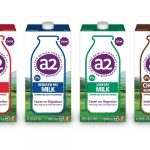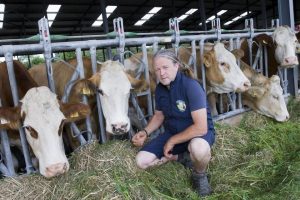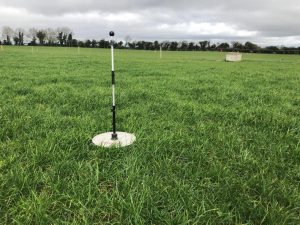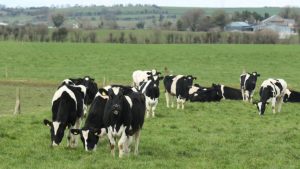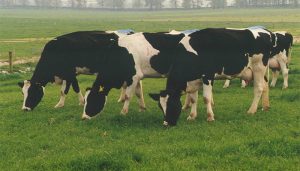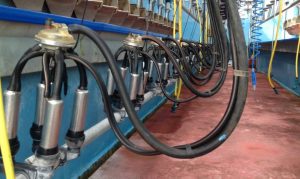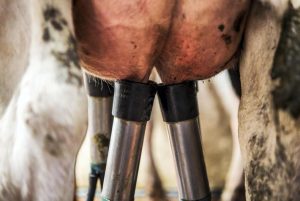
AUDIE CORNISH, HOST:
It’s looking more and more like the United Kingdom will crash out of the European Union at the end of October without an agreement on the terms of their divorce. The prospect of a no-deal Brexit has people really worried in Northern Ireland – a British province – and also across the border in the Irish Republic, which is part of the EU. NPR’s Joanna Kakissis reports that reimposing customs and border controls could ravage the lucrative dairy trade, and economic losses aren’t the only fear.
(SOUNDBITE OF RAINFALL)
JOANNA KAKISSIS, BYLINE: County Armagh in Northern Ireland is all farms and orchards. As you can hear, it rains a lot, so the hilly land is covered in thick, impossibly green grass…
(SOUNDBITE OF COW MOOING)
KAKISSIS: …Perfect for Philip Toner’s cows.
PHILIP TONER: OK. We’re walking into our main cowshed, where all the milk cows are kept. We have about 250 in this barn.
KAKISSIS: Toner’s family has farmed here since the mid-1800s.
TONER: My son is living in the original farmhouse on this property. He’s the sixth generation in the house. He’s going to be a father now, so that’s going to be the seventh generation. And so there’s a lot of history there, and I want hate to see that something as ludicrous as a no-deal Brexit could put a stop to what we do here.
KAKISSIS: The Toners sell their milk to a processor that’s partly owned by a company based in the Republic of Ireland. In fact, 35% of Northern Irish milk is sold to Ireland. Right now, an open border means it’s easy to transport milk – to lift it, as Toner says.
TONER: At the moment up around the border area, a tanker could be lifting a farmer’s milk, you know, in the north. He then drives 300 meters to the next farm, who’s in the south along the same road. He then drives another half a mile or a mile to lift a third farmer’s milk, who’s possibly back in the north.
(SOUNDBITE OF COWS MOOING)
KAKISSIS: If the U.K. exits the EU without a deal by the deadline of October 31, this borderless farmland could be replaced with checkpoints for customs. Tariffs would make British milk expensive. EU rules would prevent mixing milk from the north and south, so Northern Ireland would be left with a glut of milk.
TONER: Where do we go with over 2 million liters of milk per day that Northern Ireland simply couldn’t process? It will have to be dumped. And farmers can’t produce something just to dump it.
KAKISSIS: Do you have a plan B?
TONER: No. What is plan B – cull all your cows, sell now? That’s the only plan B.
KAKISSIS: Toner and other farmers aren’t only concerned about bankruptcy. They also worry about a return to the violence that gripped Northern Ireland for decades – sectarian conflict between Catholics and Protestants as nationalists fought British rule.
TONER: God forbid that ever happens again. In Northern Ireland, we don’t need any more polarization of the views that we already have.
KAKISSIS: The 1998 Good Friday Agreement ended the conflict called The Troubles and the checkpoints. Both sides of Ireland could finally take advantage of the single market.
KATY HAYWARD: That has brought very obvious economic benefits to Northern Ireland in particular.
KAKISSIS: Katy Hayward of Queen’s University in Belfast has been studying Irish border issues for 20 years.
HAYWARD: And it’s in the natural day-to-day connections, the businesses making deals and the expansion of business across the border that you see the embedding of trust and cooperation that is really essential to making peace a reality in this particular place.
KAKISSIS: The cooperation is even political. At a hotel lobby in Belfast, I meet Ian Marshall, a Northern Irish dairy farmer who is now a senator in Dublin in Ireland’s legislature. He tells me dairy cooperatives work on both sides of the border.
IAN MARSHALL: So you’ve got all these products – butter, cheese, milk, yogurt. So you could have a product going to the south, coming back to the north for further processing, going back to the south, going on into Europe. And it’s a fresh, perishable product, which is critically important.
KAKISSIS: Disrupting this trade will also hurt the Republic of Ireland. One study says Brexit could cut Ireland’s economic growth in half. In Dublin, I meet Michael Patten of Glanbia, an Irish dairy company that’s gone global but still values that Northern Irish milk.
MICHAEL PATTEN: Our concern is primarily for the dairy farmers in Northern Ireland. They’ve been an important part of our story. They’ve been an important part of our supply chain, and we owe it to them to do our best to try and get the situation sorted.
KAKISSIS: Smells like milk.
DEAN WRIGHT: Yes.
KAKISSIS: But at least one Northern Irish dairy farmer is Brexit-proofing his milk by processing it himself. Dean Wright shows me around the warehouse where he makes a triple-cream soft cheese that’s like a French brie.
WRIGHT: But it’s actually a lot more luxurious than a brie. This is the cheese that is actually stocked in the queen’s grocer.
KAKISSIS: His cheese is selling well, and it might do even better after Brexit, when French brie is expected to get more expensive.
WRIGHT: At a small level like we’re at, you know, we can’t change the direction of the wind. But we can adjust the sails, so that’s what I intend to do.
KAKISSIS: But Wright does hope that the winds of Brexit keep the border clear of the past, clear of checkpoints and pain. Ireland is small, he says, and he wants his friends down south to keep buying his Irish cheese.
https://ondemand.npr.org/npr-mp4/npr/atc/2019/08/20190827_atc_northern_ireland_dairy_farmers_fear_prospects_of_a_no-deal_brexit.mp4
